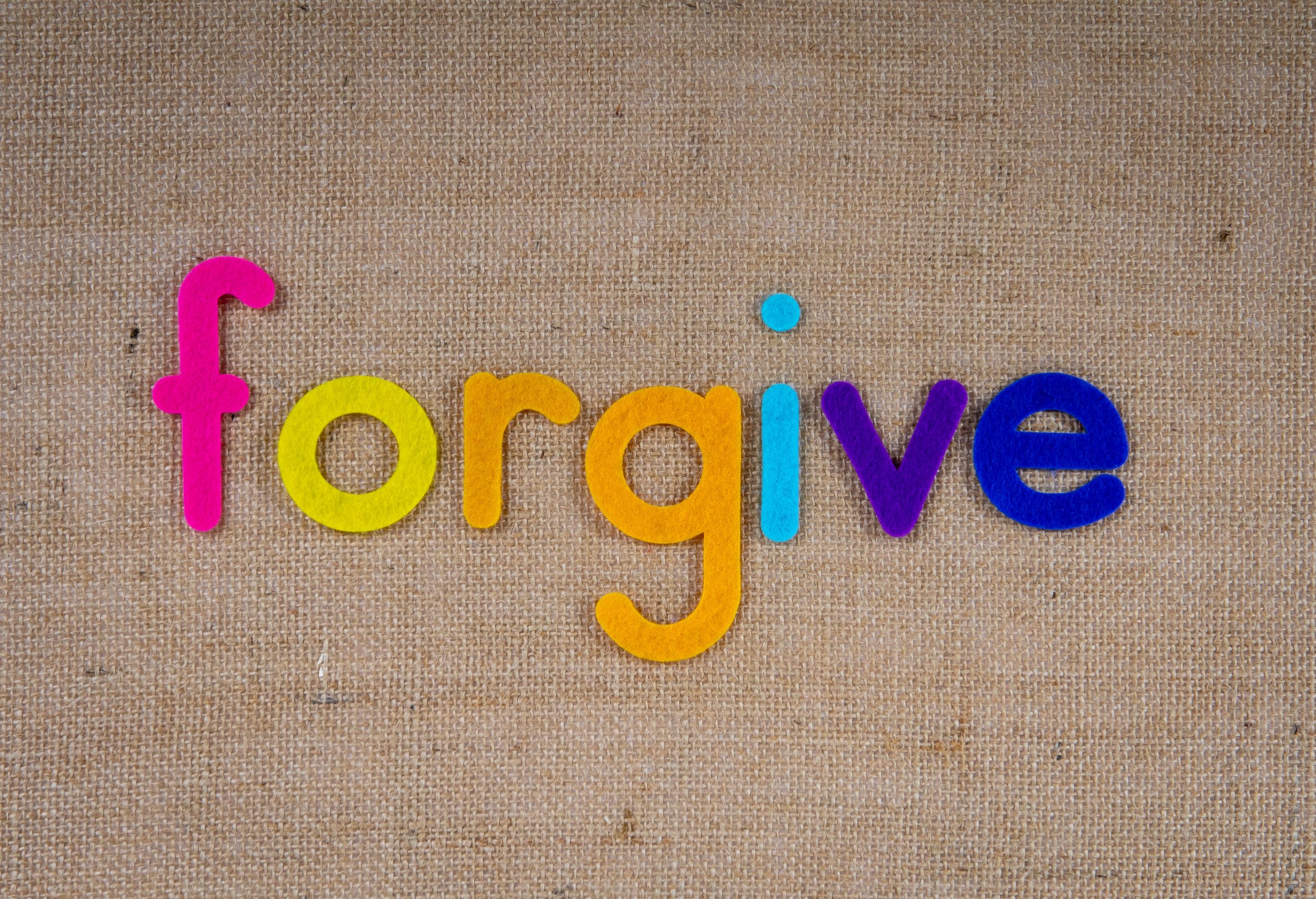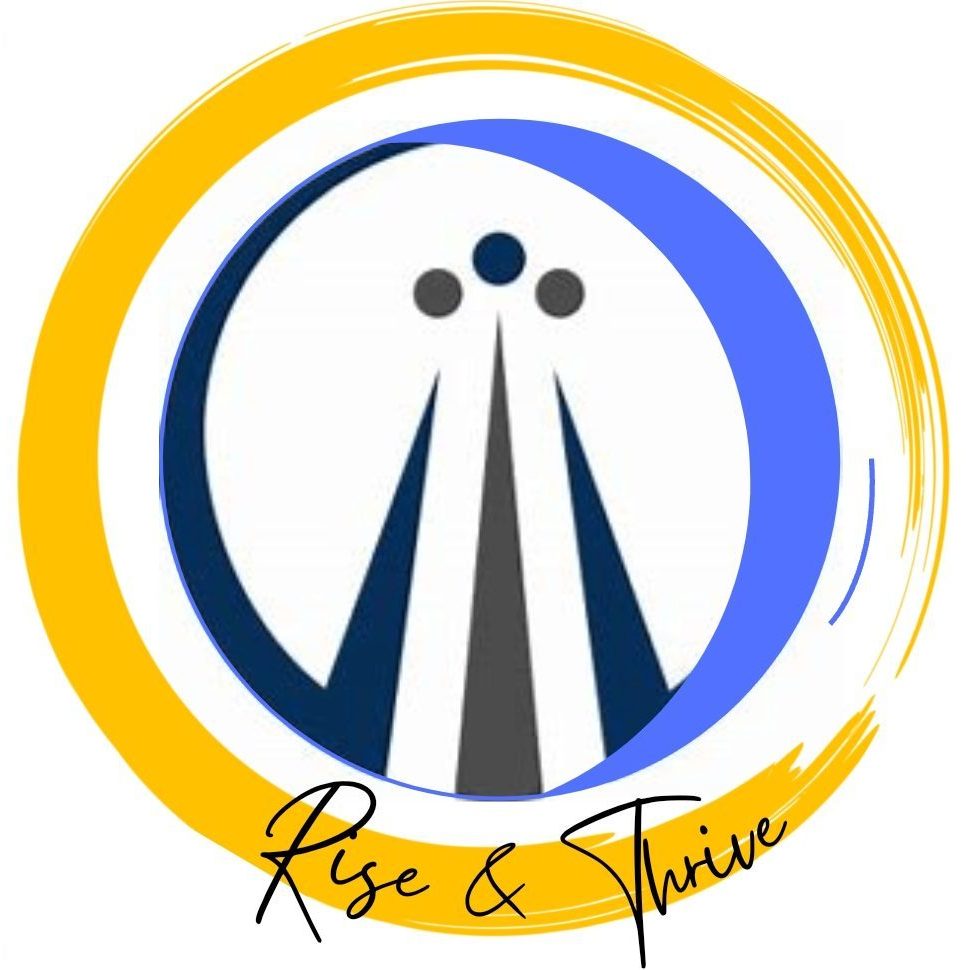
The Power of Forgiveness
The number one misconception about forgiveness is that we are doing it for the person who has wronged us. This is not the case at all. Learning to forgive benefits us and our well being above all else. When we understand this concept and apply it, we can feel liberated. We automatically raise our frequency and defuse any negative energy associated with being wronged. Emotions such as resentment, anger, rage, bitterness, sadness, anxiety, hopelessness, stress and depression are some or all of how we may feel when someone has hurt us.
The power in forgiveness is freedom. Freedom from all these negative emotions. Freedom from letting someone else’s toxic behaviour diminish our power and corrode our energy. In the absence of forgiveness, we are prisoners of the emotional wounds inflicted by others. We are doing ourselves a disservice regardless of the injustice we may feel. We are giving someone the power to hurt us.
Forgiveness is an act of love. An act of self-love and love for human kind. Our thoughts and feelings create our reality so if we focus on negative feelings generated from negative experiences we cannot stay in the frequency of love. If we let negative experiences affect us they become encoded in our memory and our cells and over time we can develop core beliefs that create a reality we don’t want. Forgiveness is one of the most important things we can do to release and let go. Negative emotions rob our energy and take a toll on our body, mind, and spirit. If we don’t release emotions such as anger, anxiety, depression, and stress we generate a negative charge in our body and in time we could be susceptible to physical and mental health problems. “The body keeps the score.” We need to forgive in order to move on, step into our future, let go of the past and tap into our infinite intelligence or our higher selves.
People can hurt us but really no one can truly hurt us unless we let them. We have the choice. We are responsible for how we receive the hurt. This is a hard pill to swallow but if we blame others we will become a victim to our circumstances. If we take control and learn to change our perspective about the person or situation we can come from a place of empathy and compassion instead of taking things personally. But like everything, this is easier said than done, especially if the perpetrator of pain is someone we love. Our perception tends to be that ‘this person is hurting us’, rather than ‘this person is hurting’. And as the saying goes, “hurt people hurt people”.
So what if we saw conflict as a good thing? A chance to change our perspective. Conflict can signal a need for introspection and change. If we harness conflict in the right way, we can actually use it as a chance to become more self-aware. We can choose to focus on being wronged or the end result we would rather. Forgiveness leads to inner peace, happiness and growth. Taking control of our emotions is a maturity that enhances our lives. Ultimately we have no control over how others behave. We do, however, have control over how we react and how we want to be in life. One of the best rules of the mind is that our mind doesn’t know the difference between reality or imagination, it only knows what we tell it. So if we take on someone else’s negative energy through our thoughts and feelings around it, our mind doesn’t know the difference. It absorbs the energy we feed it regardless of the source. Energy truly does flow to where our focus goes. So we are responsible for what messages we send to our body, mind and spirit and how we want to harness our energy.
How can we forgive and elevate ourselves? Here are some simple steps that will help us embrace forgiveness:
Step 1:
Acknowledge the hurt. Become aware of your thoughts and feelings around it. Who hurt you and why did they do it? What is the context of the situation and what is your underlying assumption about it? Where is the power? Notice where the power is in the situation.
Step 2:
Ask yourself how the hurt and pain is affecting you. Write down all the negative feelings you are experiencing. How are these feelings affecting you? Are you triggered? Why? Was the situation that hurt you unintentional or intentional? Are you aware of all the variables involved?
Step 3:
Accept that you cannot change someone else’s behaviour. You only have control over your own reaction. Rationalise whether your anger towards the person will undo what they’ve done, (It won’t). It is during this step that you must thoughtfully realise that a negative reaction won’t change anything.
Step 4:
Determine whether or not you wish to forgive the person by communicating with them or doing it without their knowledge. Communication is advisable if you want to maintain the relationship and keep that person in your life. But if that person is harmful to your wellbeing, it’s ok to forgive and move forward without them. They really don’t have to be involved in the forgiveness process. Remember, what’s important is that you are releasing any toxic emotions associated with the person who has wronged you.
Step 5:
Learn what forgiveness means to you. Up until now, you’ve probably thought that forgiveness was for the benefit of whoever wronged you rather than for your. You may have been reluctant to give that person absolution, not truly realising that we are all an extension of each other and that negative energy can harm you. Forgiveness is a way for you to find closure and step out of the pain and into your greatness.
Step 6:
Focus on the end result. Nobody wants conflict in their life but if we see that conflict as a way to become more aware of ourselves, our thoughts, feelings, emotions and behaviours we can use the experience to enrich us. Do you want to be angry, bitter, hurt or stressed? Or do you want to have inner peace, harmony and balance in your life? Ask yourself is this really important in the grand scheme of things. Is this person someone who adds value to your life and supports your growth? If they are not, mark their cards and move on. The right kind of people for you won’t hurt you. Ask yourself are you o.k. with handing over your power? If so, why? If your end result is to have a happy, healthy, peaceful life then why would you harbour resentment? What we focus on we give energy to and manifest more of the same energy. Be clear on what energy you want to align with.
Step 7:
Forgive the person who wronged you. If you rather this to be silent after assessing the previous steps, that is a choice that is perfectly o.k. You may be compelled to verbally forgive the person. Be ready for any outcome, do not expect a kind response, sometimes life doesn’t work like that. If you have followed through on the previous steps, then their reaction won’t really matter. What will matter is that you have found a way to release, let go and move on. Forgiveness will elevate your energy and frequency and that’s all that matters.
Step 8:
Make forgiveness your new familiar. Now that you understand how it benefits you, you can resolve conflict easily and prevent it from even happening. Remember, forgiveness is an act of love and when we are vibrating at a frequency of love we are less likely to draw toxic people or situations into our lives. There is so much power in being able to emotionally regulate and take ownership of our own emotions. Forgiveness is such an enriching process for body, mind and soul. Statistics show that one of the top 3 regrets for people on their deathbed is that they didn’t forgive someone they loved, don’t be a statistic, step into your power.
